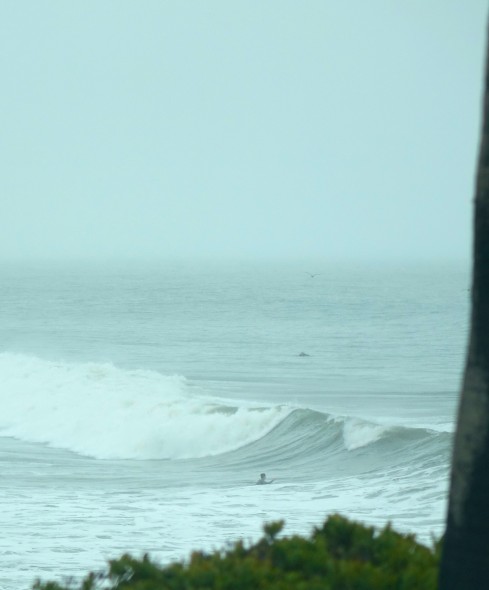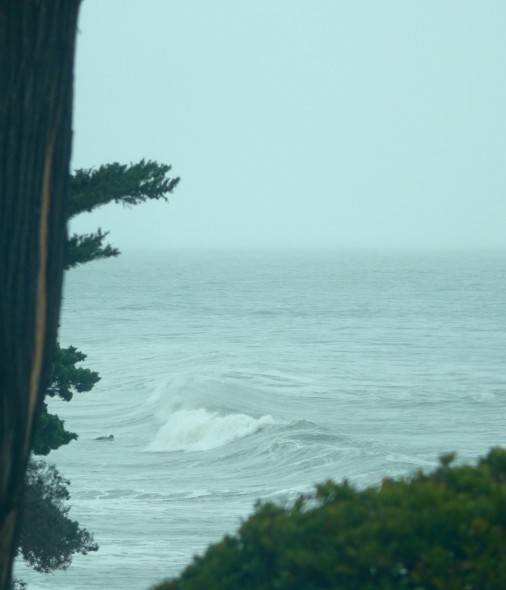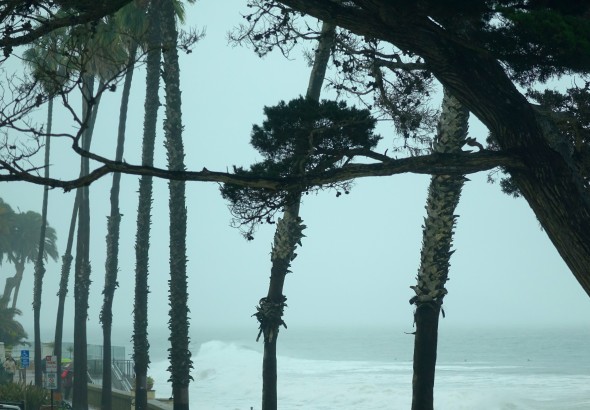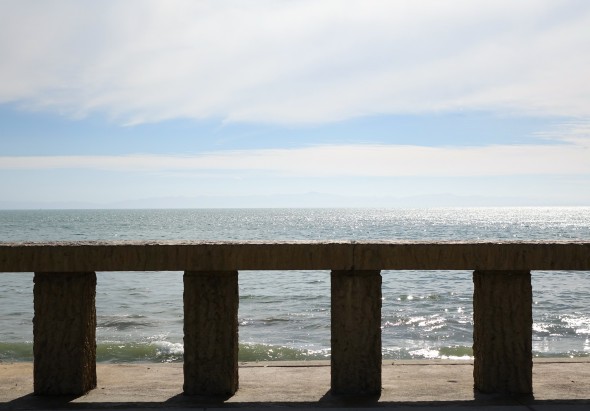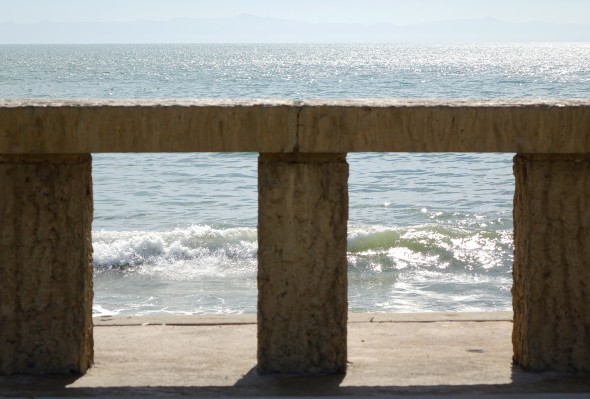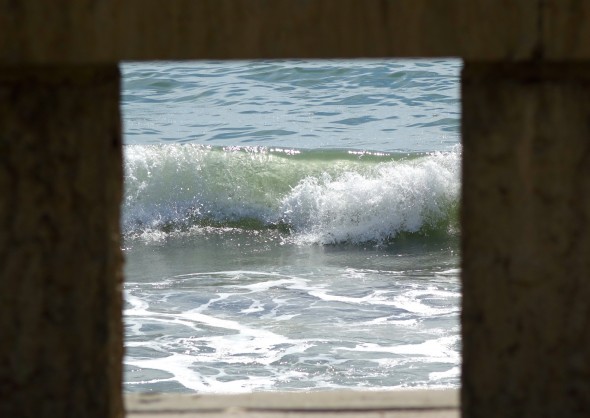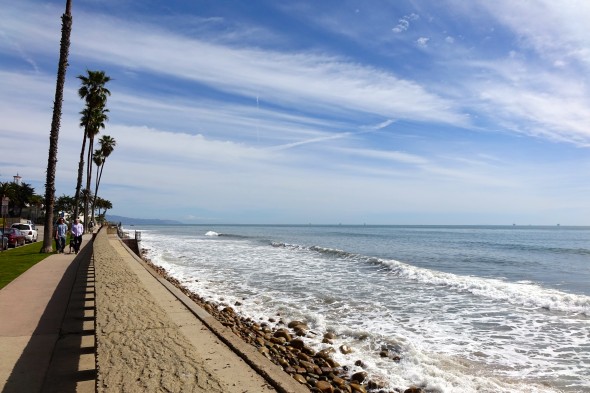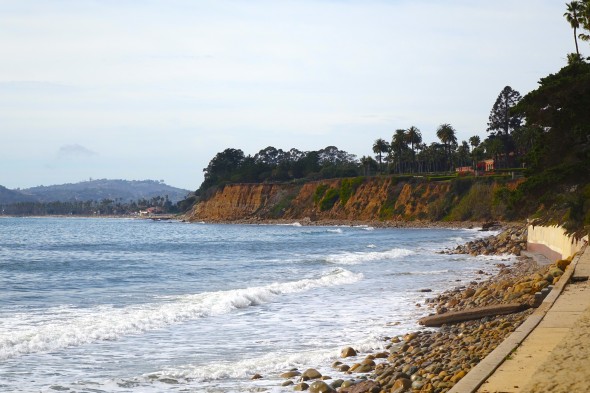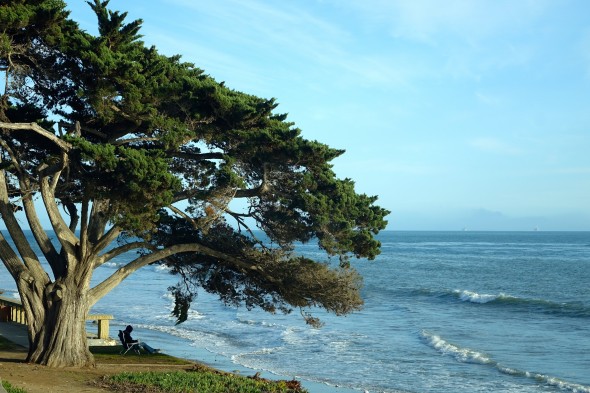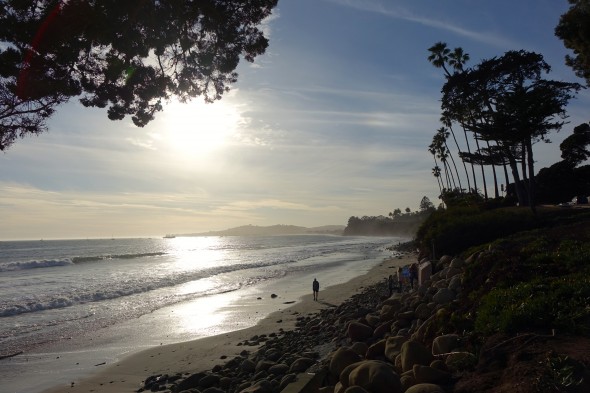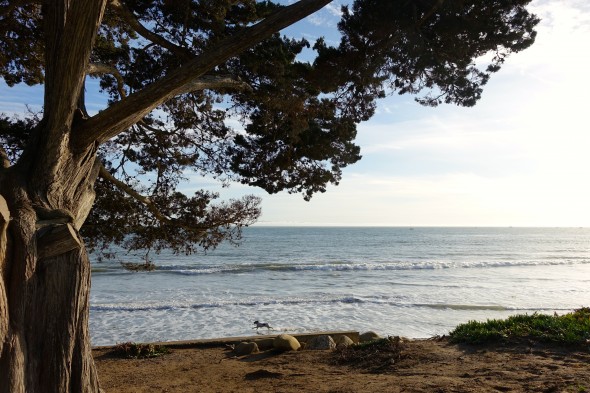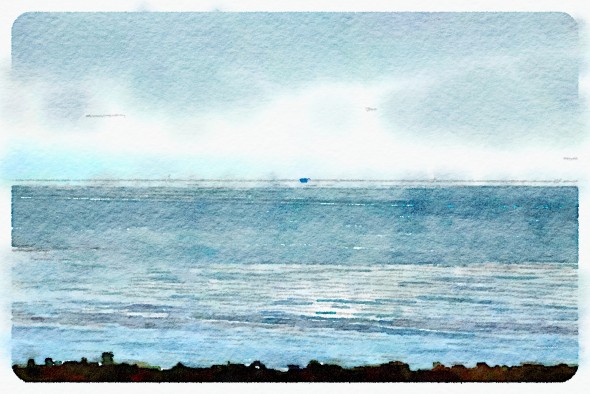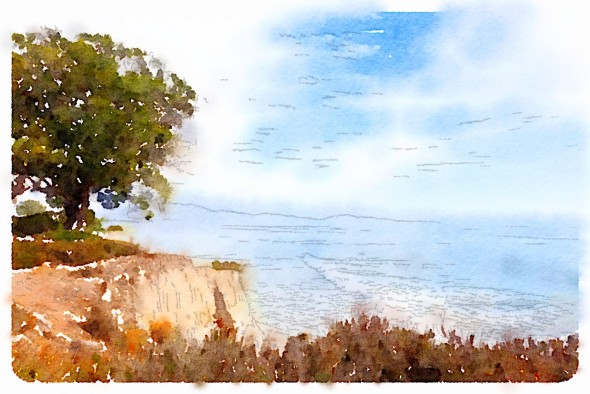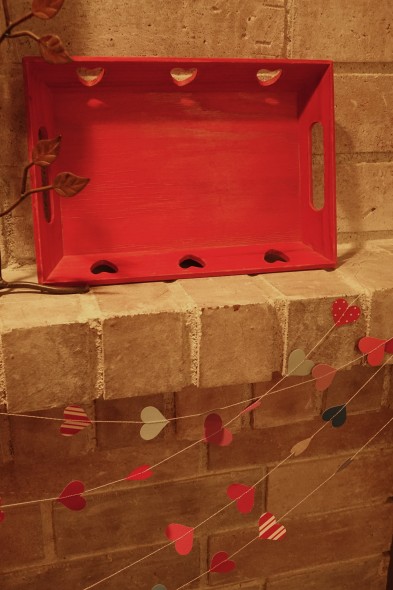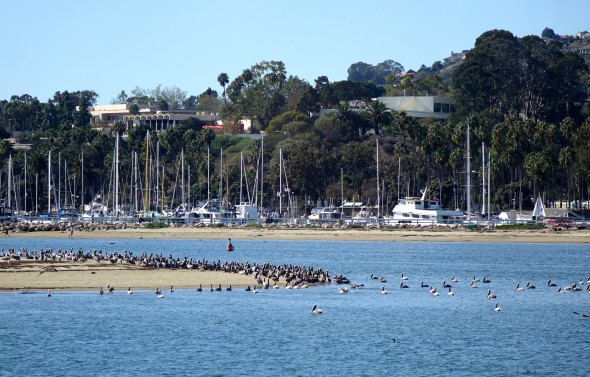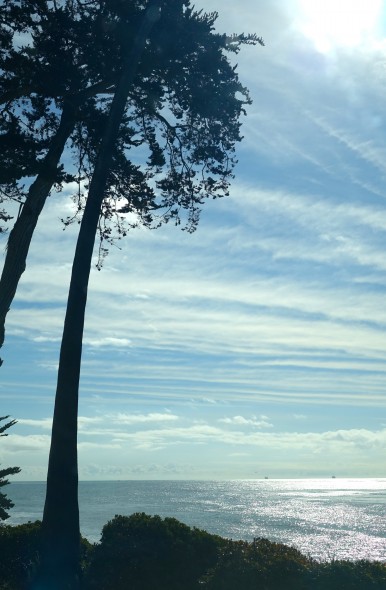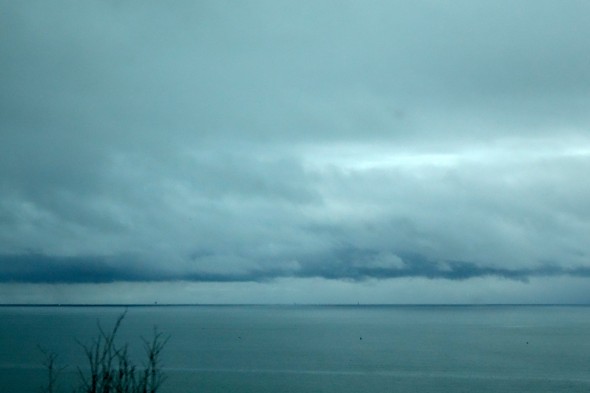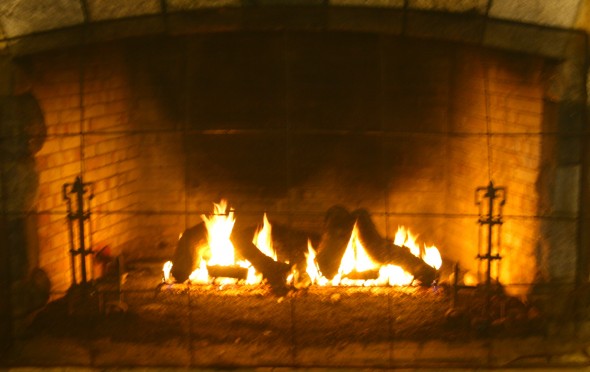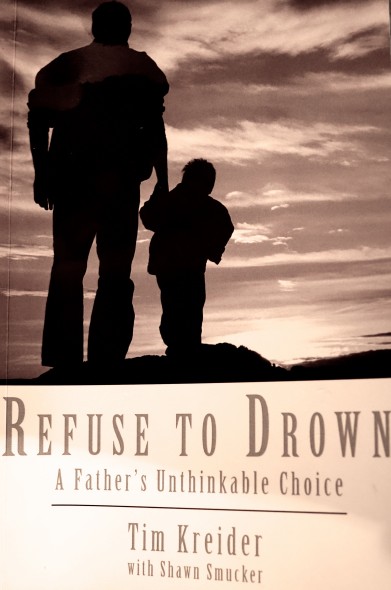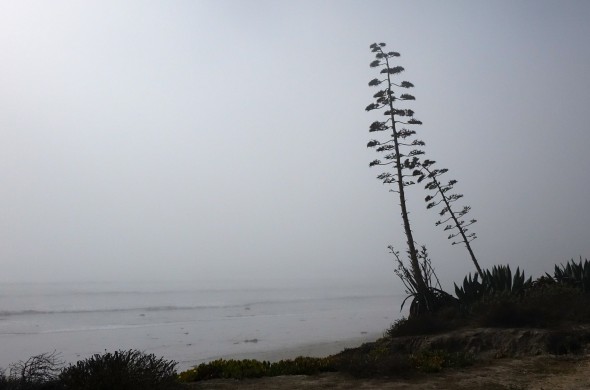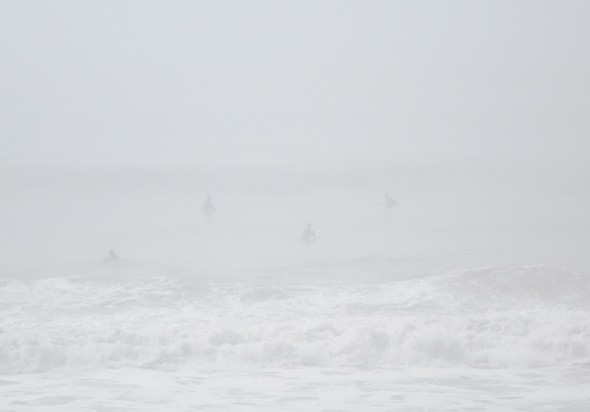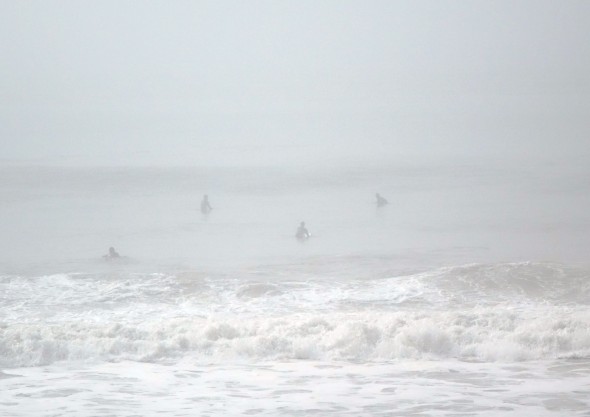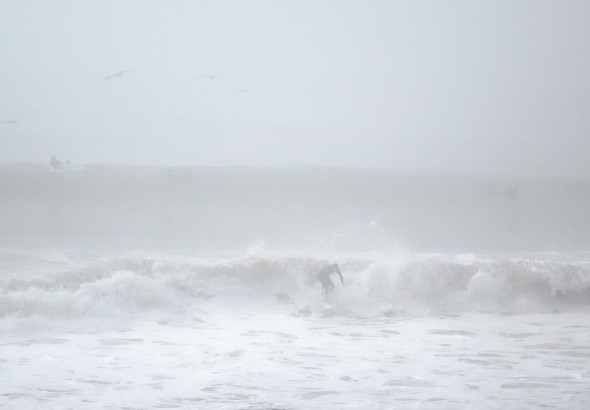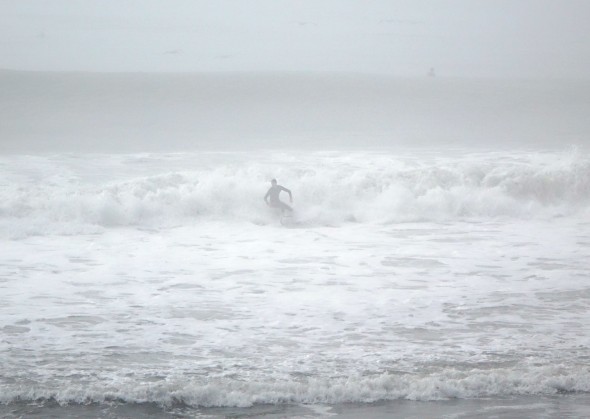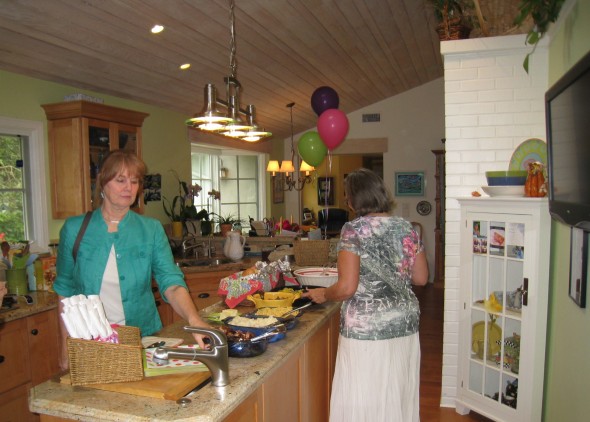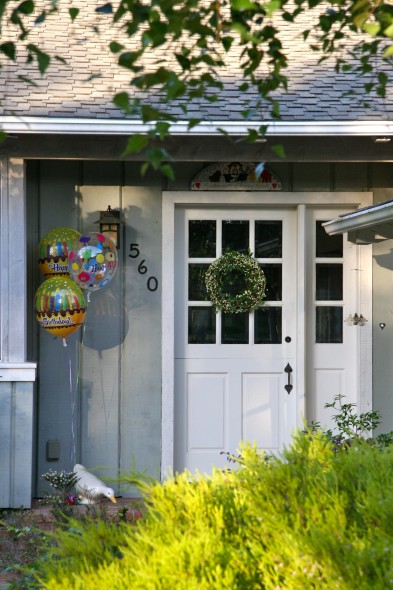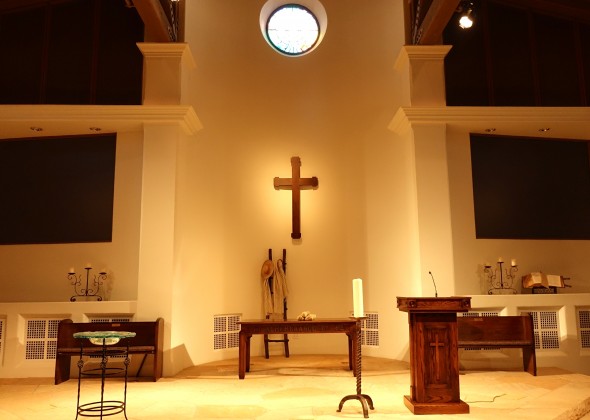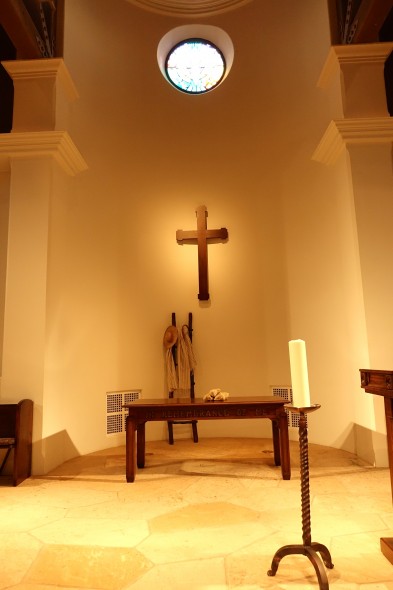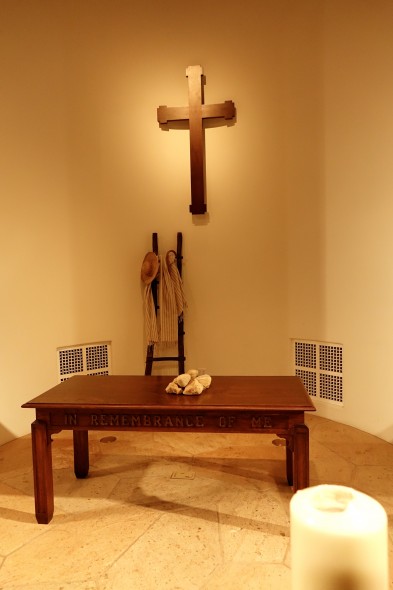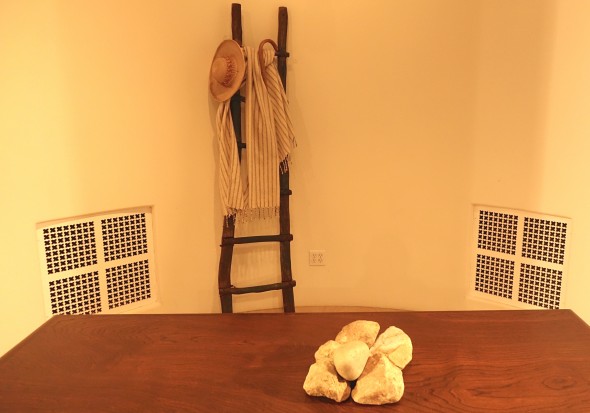Somehow this picture from my surfing cache seems to capture our little band,
hanging out together in the water, encouraging one another to go deeper!
As I read through the linked posts this week, and re-read the comments section, I was just overwhelmed with gratitude for each one of you who has been reading along through this series. I truly didn’t have a clue what I was doing when I opened the door to this and I am so glad that our small band has stuck it out to the end! Thank you all for your thoughtful, sensitive, loving responses to me and to one another all the way along — this is, sadly, a somewhat rare thing out here in the wild and wacky world of the internet, the Christian internet, and I’m thankful that we took the time to care about the words we wrote and about the people who received them.
This week’s question stirred the waters more than most, I think. Some of us have been hurt by Bible-pounding in the past, by a church community (or a family) that pulled words out of context and applied them with a sledge hammer to tender hearts. May I just say how truly sorry I am for the ways in which the church has wounded you? And used the Bible to do it?
These poignant words made my heart hurt!
I soaked up the teaching not to succumb to a lazy belief in a wishy-washy god who just wanted to love everybody. It seemed that mention of God’s love always had to be tempered with the requisite counter-balance of His justice. It’s hard when every time you think of someone loving you, your mind adds “yes, but . . . ” Maybe part of the reason the Bible has seemed crammed with “hard” things to me, is because I have trouble accepting the love of the One Whose word it is.
I’m learning to rest my weight on His grace and love instead on my own anxious efforts and promises to do better. After years of regimented personal devotions, I don’t read my Bible every single day, anymore. I don’t have one specific time of prayer. I don’t have a plan. But I’m delighted to find how God’s word has taken root in me even through the difficult years. Verses of comfort surface, sometimes when I am half-asleep, and I am reminded of Jesus’ promise that the Holy Spirit will remind us of Christ’s words. I’m treasuring Bible verses that tell me of God’s love, tenderness, and care. And for now, I’m just leaving those hard things on the shelf. My brain is healing.
This beautiful book of ours, which can be a rich source of both comfort and challenge, has too often been used to batter people. One writer wrote about the power of one group’s particular interpretation of just thirteen words in Paul’s second letter to Timothy:
The hard bits that ruled my life for so long, are still a part of my life. When I look at my wedding photos and think of my family who should have been in them, when I hear one of my children asking who ‘that lady’ is, when they’re looking at a photo of my mother, when I wish I could talk to my sister like sisters do… so many things I have been robbed of, because of the way 13 words have been interpreted: ‘everyone who confesses the name of the Lord must turn away from wickedness’. (2 Timothy 2, v 19)
I’m not bitter, but I am hurt. I will be hurt until the day I get to heaven, because there’s no getting round this one. Sure, the raw edges have healed, but it’s like an amputation – just because the stump has healed, doesn’t mean that the limbs have been restored.
Some of us are paddling hard, some of us have been through the rough bits,
and some of us are taking the ride of our lives! And we’re all in it together.
One wise writer reminded us that we sometimes bring our culturally influenced mindsets to scripture when we read. He challenged us to shed the dualistic worldview that colors too many interpretations, to choose instead to see the wholeness of the human person, and of the word of God.
In our day, the science/religion debate seems to me like a debate between a pre 17th century cosmology and a 17th century cosmology. I feel that as the 17th century cosmology – that everything can be explained by the laws of physics – a mechanistic materialism viewpoint – as this view becomes more prominent: the dualism of the Greeks becomes more attractive. It is almost as if contemporary religious thinkers accept fully the 17th century cosmology, but say “yes, that may be true, but there is another realm, the spiritual realm, and we have the key to that realm.” “All you have to do is say the right words and you can be a part of this realm too, you can be saved and enter heaven.”
Our traveling poet returned home with some rich words to share, underlining the importance of the Holy Spirit at work in us as we read and wrestle with the Word:
so I read with an interpreter
the Holy Spirit
gifted, poured out
and into mehow much better
to request living water
and let go, trusting
He will make all things
the hard, complicated
sticky things
clear in His perfect timinghelp me then, Lord
to remember to release it all
that my answer to
what do I with the hard things?
would be
I lay them at His feet
Two writers wrote lovingly of their growth in understanding using more contemplative practices for reading the Bible. One combined prose and poetry to create a beautiful reflection:
Over time, my ‘bible-thumping-in-your-face-are-you-saved?‘ days gave way to deeper reflection and grace. Made space for the ‘not knowing’ aspects of faith.
Now I am leaning toward the Contemplative and finding church is everywhere
So why should I, with great temerity,
expect You to reveal all things to me?
Should I not make room, give space
for the protective nature of Your grace
Allow for Your Spirit to open my eyes
in a gradual way ~ day after day
Knowing I can only handle so much
surprise, information, knowledge, as such?
The second referenced a wonderful book by Ruth Haley Barton (“Sacred Rhythms: Arranging Our Lives for Spiritual Transformation”) and included a great outline for the practice of lectio divina, which I heartily recommend.
It is listening in a spirit of silence and of awe for the still, small voice of God that speaks to us personally.
It’s different than in-depth Bible Study, which is much needed and important to the understanding of scriptures. Many of us have done a lot of that already, but this is a reflective reading.
Reading a passage of scripture, I listen for a word or phrase that strikes me in some way, stands out from the rest. And I pay attention to the words that bring resistance, for it is often in the things I resist that I find God has something to say to me.
At the end of the day, it is good to rest on the water and enjoy the view!
The last of the linkers (linkees?) came at this question from a different angle, and from a different background — and reading her words was both informative and delightful. She took the word ‘hard,’ which most of us defined as difficult to understand, and stood it on its head a bit by defining it as describing those things which are difficult for us to do. What a great insight! Sometimes it’s easier for us to roam widely around a perceived error or culturally dense decree or some other fine detail in scripture which doesn’t demand one thing from us in day-to-day life.
There are many passages which, with more cultural and historical understanding, become less confusing. We spend a lot of time on those but to me they are not really the hard parts.
The parts of the Bible that are hard for me are those parts where I learn that God wants me to live differently. When his expectations of his covenant people are laid out before my eyes and I know that I fall short. Not only that, I know that I don’t always want to change. But what I have found is that it is hard not to. If we keep at it, if we let the words work their way into the innermost parts of our being, change often happens.
SO true — all pieces of this! Often we don’t want to change, but if we hang in there, if we keep reading, and, as this writer suggests further in the essay — if we spend quiet, contemplative time with those words that are hard for us to live — we do find ourselves being changed! Amazing.
Readily acknowledging that some in our community have been battered by biblical misinterpretation and even abuse, she shared a different story:
No one ever used the Bible as a weapon against me. It’s just a place of great discoveries. New stories, new meanings in familiar stories. Poetry, proverbs, Wisdom, history, law, letters, gospels and even the still very odd in my eyes Book of Revelation. They are all wonderful treasures and they change me.
When I read the Bible I am learning about God and about God’s relationship with his people. I am one of those people. I am learning how God wants us/me to live.
EXACTLY! Our Book is a gift to us, despite the attempts of too many to use it as a weapon. It is, as the psalmist says, ‘sweeter than honey,’ and is one of the primary ways in which the Holy Spirit works within us to conform us to the image of Christ. Thanks be to God!
At this point, I am still uncertain if I will be undergoing surgery to repair the torn tendon in my left ankle, so I cannot say with what frequency I will be posting in the next few weeks. I’ve got several book reviews coming up AND about 4 columns/posts at two of the online magazines for which I write. All of these will show up over the next month or so; they’re in the queue and ready to roll.
I’d appreciate your continuing prayers as we make decisions and hear options.



